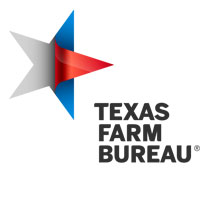Texas landowners deserve fair, transparent eminent domain process
(WACO, Texas)—The president of the state’s largest general farm organization urged Texas House lawmakers today to give landowners an eminent domain process where they can legitimately negotiate a fair deal.
Texas Farm Bureau (TFB) President Russell Boening of Wilson County testified in Austin in support of the committee substitute for HB 901 (CSHB 901) at a public hearing of the House Committee on Land and Resource Management. The legislation by State Rep. DeWayne Burns of Cleburne includes language agreed to by TFB in 2019 to ensure landowners get a fair bona fide offer and required easement terms with the initial offer.
“Over the past four years of working for meaningful eminent domain reform, Texas Farm Bureau’s goal has been simple—give the landowner a process where they can legitimately negotiate a fair deal. A fair deal that gives them the compensation they have a right to under the Takings clause of the Constitution. A fair deal that results in an easement agreement that protects their property and other rights,” Boening said to the committee. “And, hopefully, make this possible without having to hire a lawyer, appraiser or other professionals whose costs the landowner cannot recover. The landowner has no right under the Takings clause to be reimbursed for those costs.”
Boening noted the goal of meaningful eminent domain reform and the legislation is not to stop or create unreasonable delays for infrastructure projects. When a private company armed with lawyers and other professionals has the authority to take private property, there has to be a process that protects the landowner’s interest, he said.
Under CSHB 901, a private entity with eminent domain authority has made a bona fide offer only if the initial offer includes the complete written report of the property’s value and the private entity’s basis for initial offer, including any damages to the remaining property. The value or estimate price must be determined by one of the following prepared by an appraiser or real estate broker—property appraisal, comparative market analysis, broker price opinion or market study.
The bona fide offer under CSHB 901 must also include the Landowner Bill of Rights and a conveyance document with the required minimum easement terms. Features of minimum easement terms include required terms for pipeline and transmission line easements; the required terms are negotiable after the initial offer; and the easement document must be filed with condemnation petition.
“Current law does not give the landowner a legitimate opportunity to get a fair deal without hiring a lawyer or other professionals. If you look at Section 21.0113 of the Property Code, you can see it. Under the bona fide offer, it requires a landowner to receive an initial offer in writing. That’s it,” Boening told to the committee. “So, a landowner gets an initial offer in writing and then has to try and negotiate a fair deal without any information on what the offer was based upon. And the landowner is given an easement document where the landowner has to negotiate technical legal terms to protect themselves, not knowing if what they are given is what most landowners receive.”
Following the conclusion of testimony, the committee withdrew CSHB 901 from consideration and left HB 901 pending.
For more information on landowner resources regarding eminent domain, visit texasfarmbureau.org/eminentdomain.


